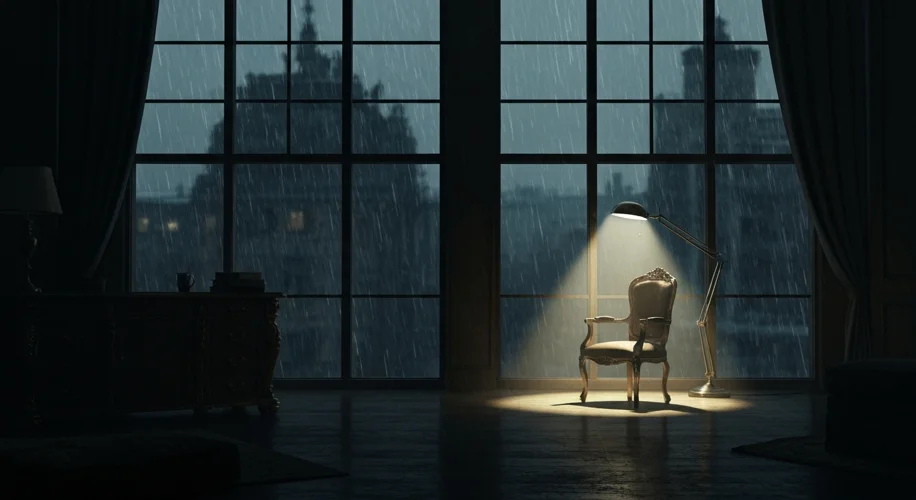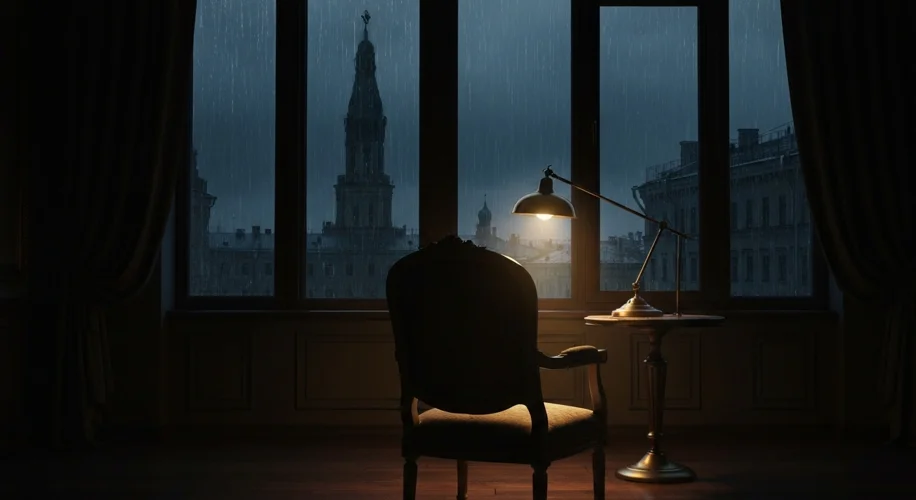The chilling pre-dawn air of Moscow, September 11th, 1998, hung heavy with secrets and the scent of approaching autumn. For Ivan K. (name changed to protect privacy, as per common practice in such sensitive historical accounts), the day would begin like any other, albeit with the usual anxieties that accompanied his powerful position. He was a man who navigated the treacherous currents of post-Soviet Russia, a media mogul whose empire was built on the shifting sands of political favor and economic reform. His life, a testament to ambition and ruthless strategy, was about to end in a manner as abrupt and bewildering as the era he inhabited.
The official report was stark: Ivan K. had fallen from the fourth-floor window of his opulent Moscow apartment. The distance was roughly 21 meters, a sheer drop that offered no second chances. The circumstances, however, were anything but simple. This was not the story of a tragic accident; it was a narrative steeped in the dark, shadowy world of power, influence, and potential retribution that characterized Russia in the late 1990s.

To understand Ivan K.’s demise, one must first grasp the tumultuous landscape of 1990s Russia. The collapse of the Soviet Union had unleashed a torrent of change, birthing a new class of wealthy oligarchs and media barons. These figures often wielded immense influence, their media empires serving as both their fortresses and their weapons in the often-brutal struggle for control. Ivan K. was a prime example – a man who had expertly leveraged his media holdings to become a kingmaker, shaping public opinion and influencing political outcomes. His rise was meteoric, his methods often opaque, and his success undeniably tied to his complex relationship with the Kremlin and its increasingly powerful figures.
Key actors in this drama were not just the business elite but also the shadowy intelligence agencies and the burgeoning organized crime syndicates. In an era where the rule of law was still a fragile concept, personal vendettas, political maneuvering, and outright elimination were not uncommon tools of power. Ivan K., with his vast network and considerable influence, had likely made enemies. Were they business rivals, disgruntled politicians, or perhaps individuals who felt betrayed by his ambitious rise? The question of who benefited most from his death loomed large.
The fall itself was a violent punctuation mark on a life lived on the edge. Eyewitness accounts, few and fragmented, painted a picture of a man either falling or being pushed. The window was reportedly open, a detail that fueled speculation. Was it an act of desperation, a sudden suicidal impulse? Or was it a meticulously planned execution, designed to look like something else entirely? The stark drop from the fourth floor made suicide a grim possibility, yet the lack of any suicide note, combined with the high-stakes world K. inhabited, cast a long shadow of doubt.
The investigation that followed was, by many accounts, perfunctory. Official pronouncements declared it an accident or suicide, a convenient narrative that allowed the authorities to close the case without delving into the murkier implications. For those who followed the events closely, however, the answers remained elusive, buried beneath layers of state secrecy and the inherent dangers of questioning powerful entities.
The consequences of Ivan K.’s death were felt not only in the media landscape he once dominated but also in the broader political climate. His demise created a power vacuum, allowing rivals to seize opportunities and further consolidating the control of those who benefited from his absence. It served as a stark, chilling reminder of the perilous nature of power in post-Soviet Russia – a world where fortunes could be made and lost, and lives extinguished, with a sudden, dramatic finality.
Was Ivan K. a victim of his own hubris, a man pushed to the brink by the pressures of his extraordinary life? Or was he a casualty of the relentless power struggles that defined his era, silenced to prevent further disruption or revelation? The fall from that Moscow window remains an enduring enigma, a potent symbol of the opaque and often deadly nature of power, secrets, and influence in a nation navigating its turbulent rebirth. The 21-meter drop continues to echo through the corridors of history, a silent testament to a life abruptly and mysteriously concluded.

